#duke of Somerset
Note
I would like to know3rd Duke of Somerset?
Henry Beaufort was simply a prominent Lancastrian attempting to avenge his father and secure his estates.
His 1462 reconciliation with Edward IV showed that those two objectives conflicted with each other after Lancastrian defeat. He did try to make peace with the Yorkist. Edward IV really try to reconcile with him and for a time it seemed Henry Beaufort was willing to make peace with him.
History knows what's next: he went back to the Lancastrian faction, fought for Henry VI and lost his land and his life in the process. It shows that the people hyperfocused on the personal interest of individuals in order to explain their allegiance have a dead spot because they can't explain Henry Beaufort's behaviour. He had no self-interest in joining a poor rebellion that had 0 chance to win back the country to Lancaster and little chance to even sustain itself in northern England.
And Beaufort still joined them, because, ultimately, Henry VI is his king. His father died for him. Beaufort and Lancaster are kin. It wasn't enough that Edward IV was more than eager to win Somerset back and friendly, or that Henry VI's rule was terrible. Ultimately his old oath and shared blood mattered more than the preservation of his estates.
The third duke of Somerset, who was willing to risk everything for familial memory and ancestral loyalty, isn't an anomaly. He shares this with the De Veres, the Clifford, Ralph Percy and so many others. The Yorkist side has this too with John Neville torn apart by having to choose between his king and his family (and then his estates), or Hastings dying for his friend's son, or Lovell fighting over and over again against Richard III's foes.
16 notes
·
View notes
Photo

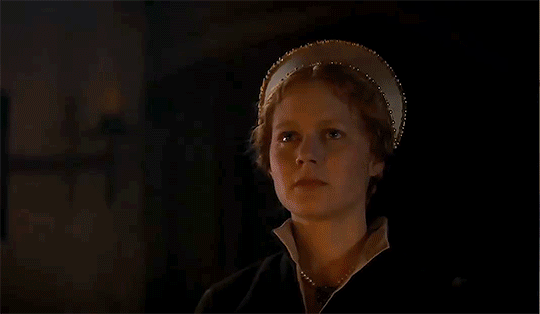


#Becoming Elizabeth#becomingelizabethedit#Edward Seymour#Princess Elizabeth#Duke of Somerset#Queen Elizabeth I#BES1E8
36 notes
·
View notes
Text
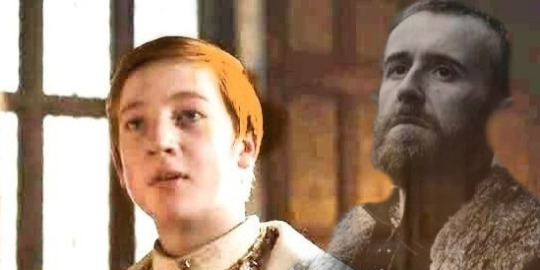
“We verily believe, and so do you we dare to say, that he mind no hurt; if in government he hath not so discreetly used himself as your opinions he might have done, we think the extremity in such a case is not to be acquired at his hand. Yet it lieth in us to remit it. For he is our uncle whom you know we love.”
—Edward VI (tenure: 1547-1553), in a letter written to his council during the opposition leaded by the Earl of Warwick and the Duke of Somerset. This letter may have been oriented by William Paget and Archbishop Thomas Cranmer.
#edward vi#tudor dynasty#king edward vi#house of tudor#edward tudor#king edward vi of england#tudor england#edward vi of england#the tudors#tudors#tudor#duke of somerset#edward seymour
11 notes
·
View notes
Text
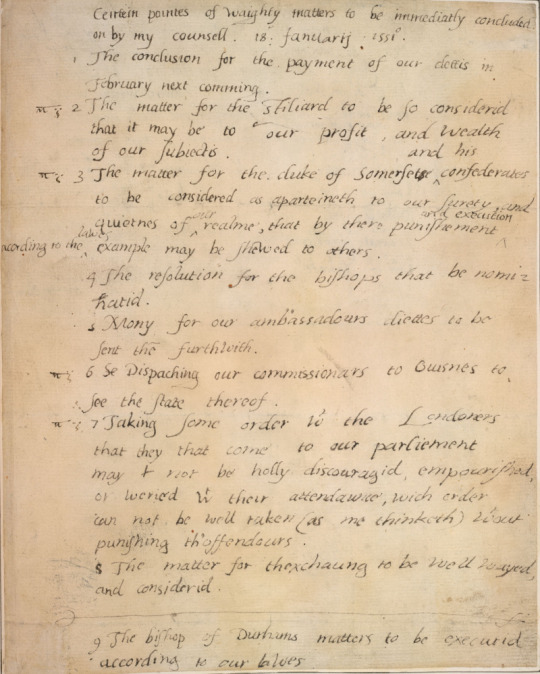
Memorandum of a meeting of Edward VI's Council dated 18th January 1551 (1552 by the modern calendar) which is written in the King's own hand. Item 3 refers to the Duke of Somerset and reads :
"The matter for the Duke of Somerset and his confederates to be considered as appertaineth to our surety and quietness of our realm, that by their punishment and execution according to the laws, example may be showed to others.'
The original text actually only refers to Somerset's confederates and their punishment... not execution. Did the 14 year old Edward make the decision himself to proceed with his Uncle's death or did someone "influence" him ???🤔🤔
#becoming elizabeth#edward vi#edward seymour#duke of Somerset#john dudley#duke of northumberland#lord protector#🪓🪓
11 notes
·
View notes
Note
I'm sorry what's this about taking your lovers head in Margot La Reine 🤨???? If true that's kinda awesome
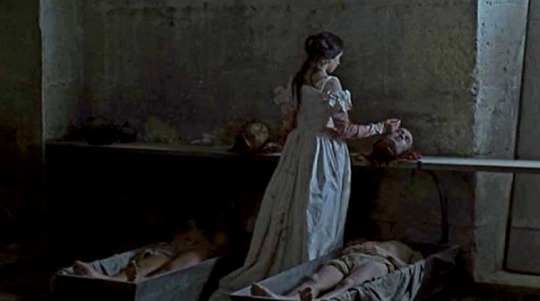
romance ♡
#wasnt there a scene in like henry vi were margaret of anjou rocks up with the dead of the duke of somerset that was inspired by this?#anyway. slay#asks#la reine margot
20 notes
·
View notes
Photo
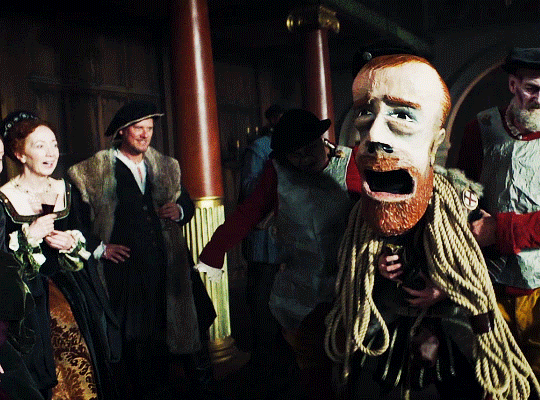

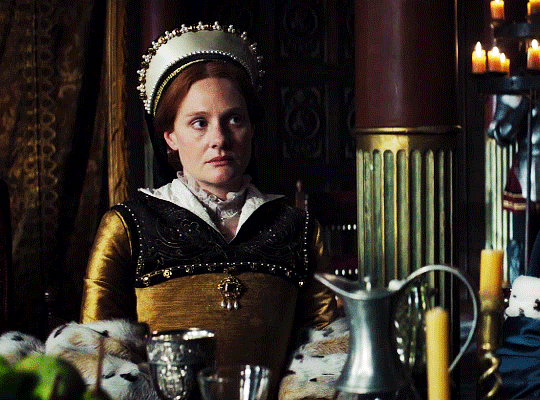
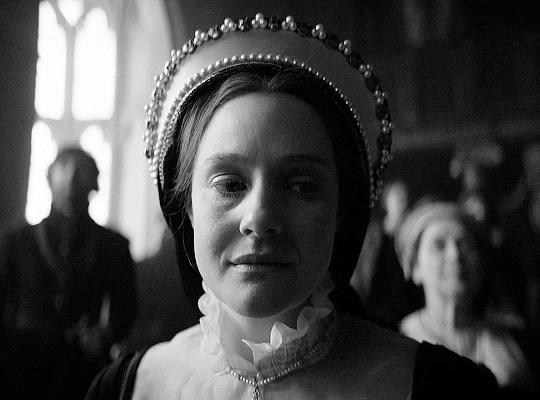
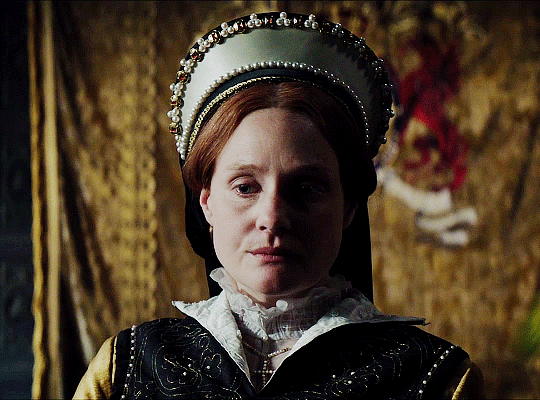
The England you wanted to rule, I wanted to live in it.
Becoming Elizabeth (2022–), 1x08 | 1x02
#Becoming Elizabeth#Edward Seymour#Edward Seymour Duke of Somerset#Mary Tudor#Mary I Tudor#Mary I#John Heffernan#Romola Garai#period drama#becomingelizabethedit#perioddramaedit#gifshistorical#periodedits#tudoredit#Becoming Elizabeth 1x08#Becoming Elizabeth 1x02#my gifs#honestly I wish she had cried again that second time around#not that I expected her to leave the room or put herself in danger in any other way#but her reaction still felt too... restrained#but even so - it's clear that she _cared_#btw: I'm still team Mary - probably always will be team Mary
390 notes
·
View notes
Quote
Thus, from the sixteenth century onwards, Katherine’s remarriage was commonly attributed to her lust and heedlessness, rendering her illustrative of traditional female failings. However, if we remove the element of moralistic disapprobation, it is possible to read the evidence for Katherine’s involvement with Edmund Beaufort and marriage to Owen Tudor differently. Rather than regarding her relationships as proof of her inability to control herself, these may instead disclose the difficulties of her situation as a young dowager queen, and even her strategies for navigating these.
Katherine J. Lewis, "Katherine of Valois: The Vicissitudes of Reputation", Later Plantagenet and the Wars of the Roses Consorts: Power, Influence, and Dynasty (eds. J. L. Laynesmith and Elena Woodacre, Palgrave 2023)
#catherine de valois#edmund beaufort 2nd duke of somerset#owen tudor#reputation and representation#historian: katherine j. lewis
23 notes
·
View notes
Text
PART 6: PRINCE EDMUND, DUKE OF SOMERSET
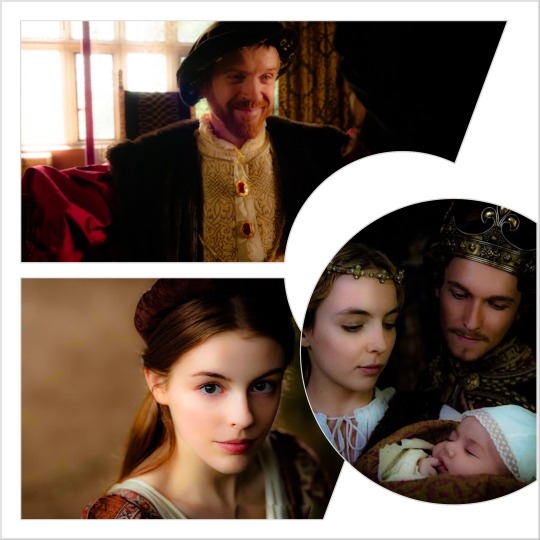
AU: All of Henry VII and Elizabeth of York’s children survive to adulthood. [Part 1 // 2 // 3 // 4 // 5 // 7] (requested by anonymous)
Read on AO3
5 notes
·
View notes
Text
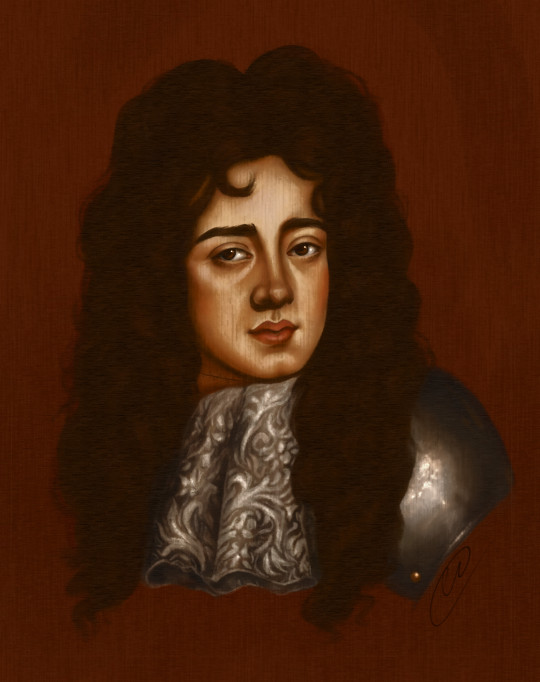
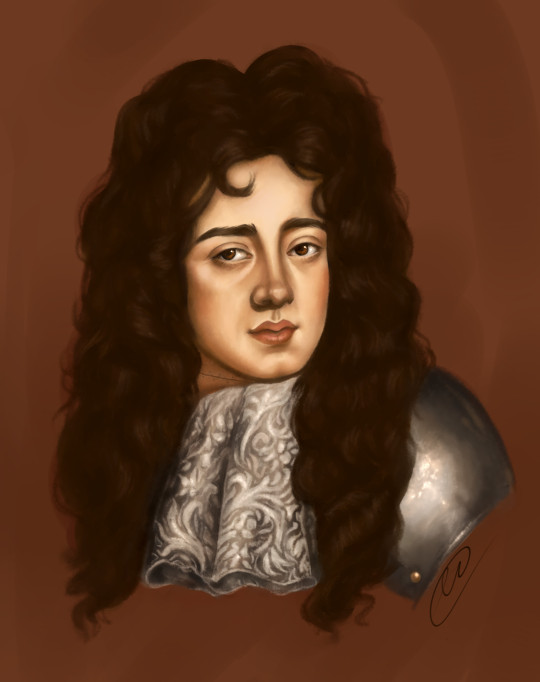
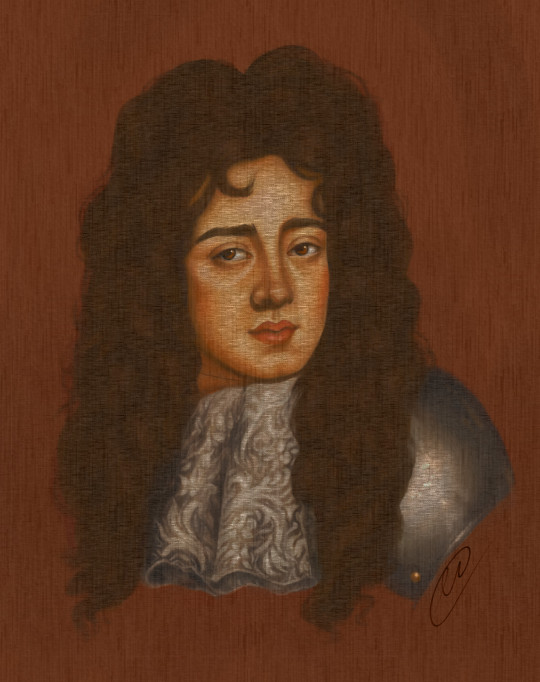
Digital portrait of James Scott, Duke of Monmouth
(05/2023)
Based on a portrait of him from about 1683, with my own spin on it!
Probably most people aren't familiar with the Duke of Monmouth, but living a few miles away from where the infamous battle of Sedgemoor (the last battle fought on English soil btw!) took place means I've known about him for basically my whole life! (there's also a local legend that Queen Victoria pulled the blinds of her carriage down when she was travelling through the area because of how the Somerset people had supported the Duke lol) He was an illegitimate son of Charles II and attempted to overthrow his uncle (James II) by inciting a rebellion across the West Country but was unsuccessful and ended up being executed for treason...
But recently I discovered that there was a rumour that after he was beheaded, they realised they didn't have an official portrait of him, so they stitched his head back on his body and had him 'sit' for a portrait lol
Have to say that this is totally untrue, of course lol (there's several portraits done of him prior to his death), but it's such a bizarre and gruesome detail I couldn't resist including a hint of it in my painting here!
#historical portrait#historical figure#duke of monmouth#monmouth rebellion#history#digital painting#artists on tumblr#british history#somerset history#another interesting detail bout monmouth is that he ran away once his army were defeated at sedgemoor#but was discovered days later dressed as a peasant in a pea field in hampshire lol
15 notes
·
View notes
Text
it really is fascinating to me that essentially the only successful rebellion in the tudor era is pulled off by mary tudor
#🗡️#although i think there's something to be said#for the dukes of somerset and northumberland#who in effect stage coups over Who's In Control Of Edward#without really staging coups over the monarchy itself#(somerset tries to kidnap edward and it is notoriously unsuccessful)#you could also put henry vii as the other successful rebellion of the tudor era#but then you're left with only the tudors managing to upstage the tudors lmao
8 notes
·
View notes
Note
I would like to know3rd Duke of Somerset
Love Story,
You've talked about him before with a lowly woman
Hi! We don't know much about Henry Beaufort's romance/love affair. We only know that his mistress was called Joan Hill and that their affair began sometime before he went into exile in 1461. He probably took her with him to the Continent because their son, Charles Somerset, grew up in Burgundy and was probably born there too, considering the name 'Charles' was unusual among the English nobility but would make perfect sense if Charles of Burgundy (then count of Charolais, the Burgundian heir) was his godfather. Charles of Burgundy and Henry Beaufort became friends in 1460 and it was only through Charolais' intervention that the Duke of Somerset was released from imprisonment in France at a time when Louis XI favoured the Yorkists.
We actually only know that the mother of his child was called Joan Hill because Henry VII granted her an annuity in 1493. As the son of the 3rd Duke of Somerset (albeit an illegitimate one), Charles Somerset was Henry VII's cousin and he joined the king in exile, fighting with him at the Battle of Bosworth. He served as Henry's captain of the King's Yeomen of the Guard, as his ambassador and later as his Lord Chamberlain, a position of ultimate trust, and was made Lord Herbert after his wedding with William Herbert and Mary Woodville's daughter, Elizabeth Herbert. Both Henry VII and Elizabeth of York personally attended their respective cousins' wedding. Somerset was later made a knight of the Garter and was eventually elevated to Earl of Worcester.
#ask#anon#henry beaufort 3rd duke of somerset#joan hill#charles somerset 1st earl of worcester#beaufort tag
4 notes
·
View notes
Text






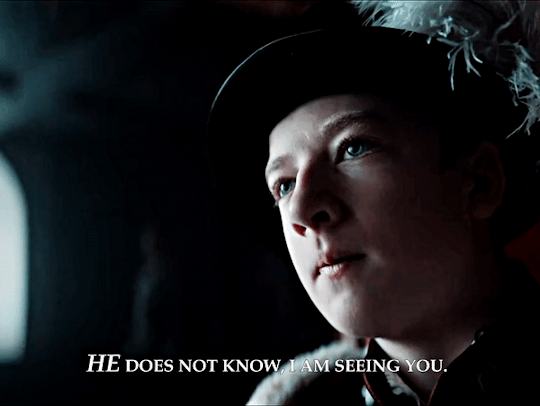

Somermary talks about eachother in episode 2 but this time with Edward vi
#mary i#mary tudor#becoming elizabeth#edward seymour#john heffernan#romola garai#mary i x edward seymour#lordsomerset#becomingelizabethedit#gifshistorical#edward vi#tudor era#tudors#tudor#lord somerset#edward seymour duke of somerset#mary i of england#becoming elizabeth gifs#gifs#oliver zetterstrom
53 notes
·
View notes
Photo
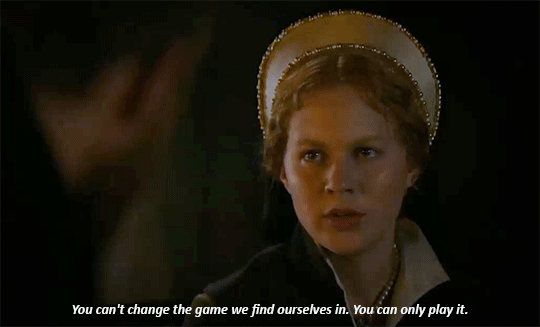
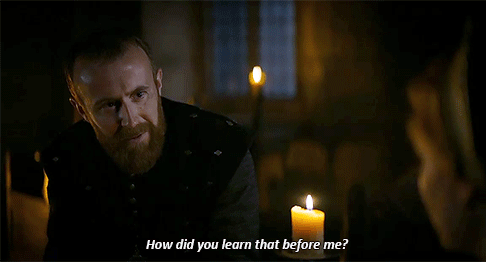
#Becoming Elizabeth#becomingelizabethedit#Princess Elizabeth#Edward Seymour#Queen Elizabeth I#Duke of Somerset#BES1E8
40 notes
·
View notes
Text

Curiously enough, I’ve only recently watched “Becoming Elizabeth” as I’ve concomitantly read Edward VI’s biography.
It is hardly a surprise to observe there were great differences between the show and the book, specially concerning Katheryn Parr and Thomas Seymour’s own relationship.
Admittedly, though I know little of this matter myself, came across the excerpt below which gave me a lot to think about. For those who are little familiar with the first Dowager Queen of England in an almost a century (the last being Queen Elizabeth Wideville), the following content might actually come a surprise—or not.
What matters here is to promote not only a healthy discussion about their union, but showing that whereas Katheryn did love the man, she was not his first option to marry and she was not a “fool” completely blinded by her affection for him: she hesitated at first, unwilling to remarry in at least two years before becoming Lady Seymour out of respect for the king of England. However, Lord Thomas was a persuasive man, writing as far as a poem to claim the dowager queen’s heart—and he eventually succeeded it, as we are seeing next.
“Katherine moved into her dower house at Chelsea - away from the eyes at court, it was the ideal setting for Seymour to pay secret visits by night. Letters were sent and received, their contents, upon Katherine's urging, were quickly burnt: 'Your letter being finished ... I remembered your commandment to me’, Seymour wrote, ‘wherewith I threw it into the fire, be minding to keep your requests and desires’, yet the survival of both their letters suggest that neither was quite so willing to part with these tokens of love and affection.
Katherine confided her feelings to her friend Lady Paget, who urged marriage. But Katherine was hesitant. She wished 'it had been her fate to have him for a husband' but she was mindful of her position as queen. She had even kept the affair secret from her sister Anne who, when Katherine finally revealed the news, 'did not a little rejoice'.
As a growing number of friends discovered the secret of the affair, it became increasingly difficult to keep it hidden and rumours soon abounded. Meeting Seymour in St James's Park, Princess Elizabeth's servant Katherine Ashley challenged him over his marriage plans. Seymour boasted 'he would prove to have the queen', to which Ashley retorted that she thought this 'was past proof as I had heard he was already married to her'.
Ashley was right, for sometime between mid May and the beginning of June the couple had wed in secret, with one commentator believing the marriage had taken place as early as thirty-four days after Henry's death.
If this was true, then Katherine was playing a dangerous game - if she had become pregnant, there would have been no certainty that the child was Seymour's or Henry's. Katherine remained unwilling to commit herself, having doubts to the last.
She claimed she was his 'loving wife in her heart' but was determined 'never to marry, and break it when I have done, if I live two years'. Nevertheless, Seymour got his way. News of their marriage could not stay secret for long.
'I wish the world was as well pleased with our meaning as lam well assured [of ] the goodness of God's’, Katherine had lamented, 'but the world is so wicked that it cannot be contented with good things’. Instead she suggested that they find support for their union amongst the most powerful members of the council and court.
Seymour tested Princess Mary's reaction. It was not good. Mary considered it 'strange news', writing that if Katherine was keen, there was little she could do. In any case, 'being a maid' she was 'nothing cunning' about 'wooing matters'.
Instead, Mary appealed to her dead father's memory: if Katherine was not willing, certainly she would not 'persuade her to forget the loss of him, who is as yet very ripe in mine own remembrance’. Privately Mary was horrified at the prospect, and blamed Katherine for the affair. She possibly even appealed to Elizabeth to discourage the queen, but her half-sister, not wishing to stir up trouble, told her that they lacked any influence at court and should suffer with patience what was impossible to prevent.
Seymour would have to look elsewhere for support and he knew precisely whom to turn to. His confidence rested in the fact that he had managed to remain in regular contact with Edward through John Fowler, a Gentleman of the Privy Chamber, whom Seymour gave a bribe of £10 (£3,000) shortly after the coronation and before long was in his regular pay. Despite being almost continually in the presence of other gentlemen of the chamber, Fowler was soon able to converse with Edward and soon struck up a close friendship with the king, speaking to him alone.
It was not long before Seymour was calling in the favours. At the end of February he had met with Fowler over a drink and asked whether Edward had mentioned him - and in particular whether the king had ever wondered why he had remained unmarried. Would Edward be happy for him to marry? And who should he take as his bride?
Without asking too many questions, Fowler approached Edward a few days later, somewhat unsubtly repeating Seymour's queries. Edward's first reply was to suggest Anne of Cleves, but then, giving the matter more serious attention, answered that he thought Mary to be the best choice, if only 'to change her opinions'.
When Seymour heard, he laughed. 'I pray you, Mr Fowler, if you may soon, ask his Grace if he could be contented I should marry the Queen.’ He also wanted to know if Edward would write a letter on his behalf in support of the marriage.
It was at this time that Seymour, without Fowler's knowledge, began to visit Edward in private. It was not long before he had persuaded him to write a letter to Katherine, dated 25 June. Despite Edward writing to Katherine at the end of May urging her to 'continue to love my father', now the king seemingly endorsed her relationship with Seymour, since the letter ingeniously made their marriage appear as Edward's personal request to Katherine.
Moreover, it gave specific assurance that Edward would safeguard Katherine against any reaction from Somerset, who the couple knew would be furious at their secret union: 'Wherefore ye shall not need to fear any grief to come, or to suspect lack of aid in need; seeing that he, being mine uncle, is so good in nature that he will not be troublesome ... if any grief shall befall, I shall be a sufficient succour.'
The entire letter was no doubt composed by Seymour, who probably dictated it to the king.(…) When news of his brother's marriage leaked out, Somerset was furious. Edward's blessing made Somerset all the more enraged, and the king was not immune from the brunt of his anger, noting in his journal that 'the Lord Protector was much offended’.
But it was his wife Anne, the Duchess of Somerset, who took the greatest offence to the union. Described as 'a woman for many imperfections intolerable, and for pride monstrous, subtle and violent' who held Somerset under her sway 'by persuasions cunningly intermixed with tears', she detested Katherine.”
SKIDMORE, C. “Edward VI: The Lost King of England”.
#tudor dynasty#Edward VI#Katheryn Parr#Queen Katheryn Parr#Queen Catherine Parr#Queen Katheryn#Queen Catherine#Queen Katherine#Dowager Queen of England#House of Tudor#Thomas Seymour#Lord Thomas Seymour#Baron Sudeley#Lord Admiral#House of Seymour#Edward Seymour#Anne Stanhope#Duke of Somerset#Duchess of Somerset#Will write about Anne and Katheryn’s rivalry in a future post.#Princess Mary Tudor#Princess Mary#Lady Mary Tudor#Queen Mary I of England#Princess Elizabeth#Lady Elizabeth Tudor#Queen Elizabeth I of England
9 notes
·
View notes
Text
The book I am reading about royal heirs who didn't become King (occasionally Queen) of England has finally got to Edward V (there are a LOT of Edwards in this story so far, as well as a lot of Henrys and a number of Matildas that defies all common sense), which means AT LAST we shall get to the glorious reign of Hot Richard \o/
#the title specifies mediaeval heirs so i assume it's ending after THAT LANCASTRIAN SHITLORD kills beloved ricky#fanwars of the roses#it's actually done a pretty good job of making the Wars of the Roses thus far not TOO confusing#tho i admit i stopped paying attention to most of the earls and dukes long ago because really who can be bothered with all that?#i just take it as read that any named person is somehow related to one of Edward III's confusing swarm of sons#“oh this one's the great-nephew of George of Asda the second earl of Northsomethington who married his own sister”#(aside: many of the Northsomethings in England are a LOT further south than I would have assumed from their name)#(2nd aside: it's neat that while Edward of Lancaster and Anne Neville were being betrothed to everyone in sight they married each other too#(he's just died in the previous chapter and I am fairly sure she's the one who ends up married to Richard III THE HOTTEST ENGLISH KING EVER#(a LOT of people died in the previous chapter. several of them had the same name/title so i stopped trying to keep track after a while)#“this Duke of Somerset is not the one from the previous battle he's -” I DONT FUCKING CARE GET TO THE REGICIDE BITS#books and reading#history fandom
5 notes
·
View notes
Text
on more fucking thomas elizabeth scene and I start executing hostages

#edward syemour the ONLY bitch in this entire house that I respect#dukes of somerset always having my back xoxo#also licherally not them trying to make us believe alicia is playing A 15 YEAR OLD. i had to pause and stare into the middle distance for a#good while after that ngl#altho her being 15 does explain why the fuck shes soooo annoying but by gOD. also that breathy fucking voice.#is unlocking some deeply upsetting violent tendencies within myself#anyways lady jannie grey my most beloved 💓 💖 💗 💕#love catherine more catherine hate thomas NO MORE thomas#also mary pedro the only people fr#becoming elizabeth#txt.me
12 notes
·
View notes